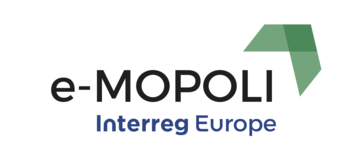In Kainuu, the focus of e-MOPOLI project is on developing a regional, 0-emmissions network of charging stations based on bio-gas applications.
The use of electric cars in areas such as Kainuu has not developed yet, as the national priority has been on valorising natural resources for biogas. As formally stated in the approved e-Mopoli project application:
"Thanks to abundant natural resources as well as to industrial sideflows (from the wood processing industry, hugging industry, bioethanol extraction industry), municipal waste, and sewage sludge, Kainuu has excellent possibilities to develop the next generation energy production chain for high quality bio fuels and especially bio-gas. The sideflows from wood processing industry is some 300 000 cubic meter bark and saw dust. In addition to this some 312 000 cubic meter wood chip is forwarded to pulp industry from saw mills of Kainuu. The whole chain of production and use has to be developed in Kainuu Region.
Biogas can be used in two ways: electricity/heat and fuel for vehicles. The technology for these uses exists however, operators are lacking. The network of charging stations for electric cars and for bio-fuels using cars is lacking in Kainuu and needs to be developed. This lack is serious for the future of Kainuu tourism, since most of the tourists coming to the region by private cars, will be increasingly having. vehicles utilising. electric and / or biogas mobility solutions."
Today, in Kainuu, there are nine electrical charging stations and no bio-fuel charging station. The network is under-utilised by consumers. Developing a regional network of electric and bio-fuel stations is an important infrastructure for the tourism development of the region. Key reasons for the underdevelopment of such a network includes high car prices, batteries working capacity is short, long distances in Kainuu region.

During ILW1 were presented local good practices involving project partners and experts selected from each partner’s stakeholder group.
Our good practice transfer focus will be on tailoring & testing solutions that strengthen the sustainability of this not yet sufficiently developed regional network of electrical- and bio-fuels- charging station. Activities, co-operation and developing innovations to create network of stations (biofuels and electric) and attract operators to Kainuu region can be funded from Structural Funds and RDF.

Policy instrument were analysed on three levels in three working groups: business, policies, RIS3 involving project partners and experts selected from each partner’s stakeholder group in relation to policy instrument . Actions to increase the number and use of e-cars: through public procurement public operators acquire e-vehicles and build a more comprehensive charging network. This will enable private e-car purchases.
Increasing demand also creates the market for e-cars used and therefore more affordable e-cars are available to the market and more opportunities to buy and replace combustion cars by electric cars. The development of a comprehensive charging network also attracts tourists to the region, increases the charging network’s utilization rate and demand and improves the attractiveness of Kainuu as a sustainable tourism destination area.

The group paid a visit to the bioethanol plant St1 has established to Kajaani and after that discussed the different products from the biorefinery. Biogas uses local resources, production is circular economy and biogas reduces GHG emissions by 85 % compared to gasoline. Biogas is produced from biowaste, manure, municipal and industrial sludges etc. Biogas is suitable also for trucks (vs. electricity).

Objective of the site visit is to give the participants a view on a production process of alternative biofuels based on circular economy and to gain understanding of the business environment such a biorefinery will require. Biogas is a pure bio-based transport fuel. There are currently no biogas charging points in Kainuu, but in Southern Finland its use is increasing. Kainuu needs to build a biogas charging network as well as electric cars.
This development is best achieved by acquiring biogas carriers for large public sector operators. Public operators acquire biogas carriers and build a more comprehensive charging network. This will enable private cars to be purchased. A biogas charging network is also needed that tourists traveling by biogas cars will come to Kainuu. The visit was helpful for the participants to understand the process and the need for a stable, profitable and sustainable outlet for all products from the biorefinery.

After the IF1 an internal meeting was held among partners on project activities with short update on status quo of activities from all the task leader partners.

Cover photo: Ville Hyvönen


![[NEWS] Brescia: E-bike sharing in Brescia](/fileadmin/user_upload/tx_tevnewsevents/news/image_1664960602.jpg)
![[NEWS] Rogaland: battery-only high speed craft](/fileadmin/user_upload/tx_tevnewsevents/news/image_1664804367.png)
![[NEWS] BSC: promoting e-mobility in Gorenjska](/fileadmin/user_upload/tx_tevnewsevents/news/image_1660136312.png)
![[NEWS] BSC: new opportunities for cooperation](/fileadmin/user_upload/tx_tevnewsevents/news/image_1660136159.jpg)
![[NEWS] Rogaland: Solar power for electric airplanes](/fileadmin/user_upload/tx_tevnewsevents/news/image_1660135530.jpg)
![[NEWS] Bucharest: decarbonization of transports](/fileadmin/user_upload/tx_tevnewsevents/news/image_1656521459.jpg)
![[NEWS] Calabria: CENTRE FOR SUSTAINABLE MOBILITY](/fileadmin/user_upload/tx_tevnewsevents/news/image_1655983407.png)
![[NEWS] BSC: rental system network for bikes](/fileadmin/user_upload/tx_tevnewsevents/news/image_1655967495.png)
![[NEWS] Attica: Electromobility in Paiania](/fileadmin/user_upload/tx_tevnewsevents/news/image_1655110894.png)
![[NEWS] Attica: First e-bike festival in Athens](/fileadmin/user_upload/tx_tevnewsevents/news/image_1655110292.png)